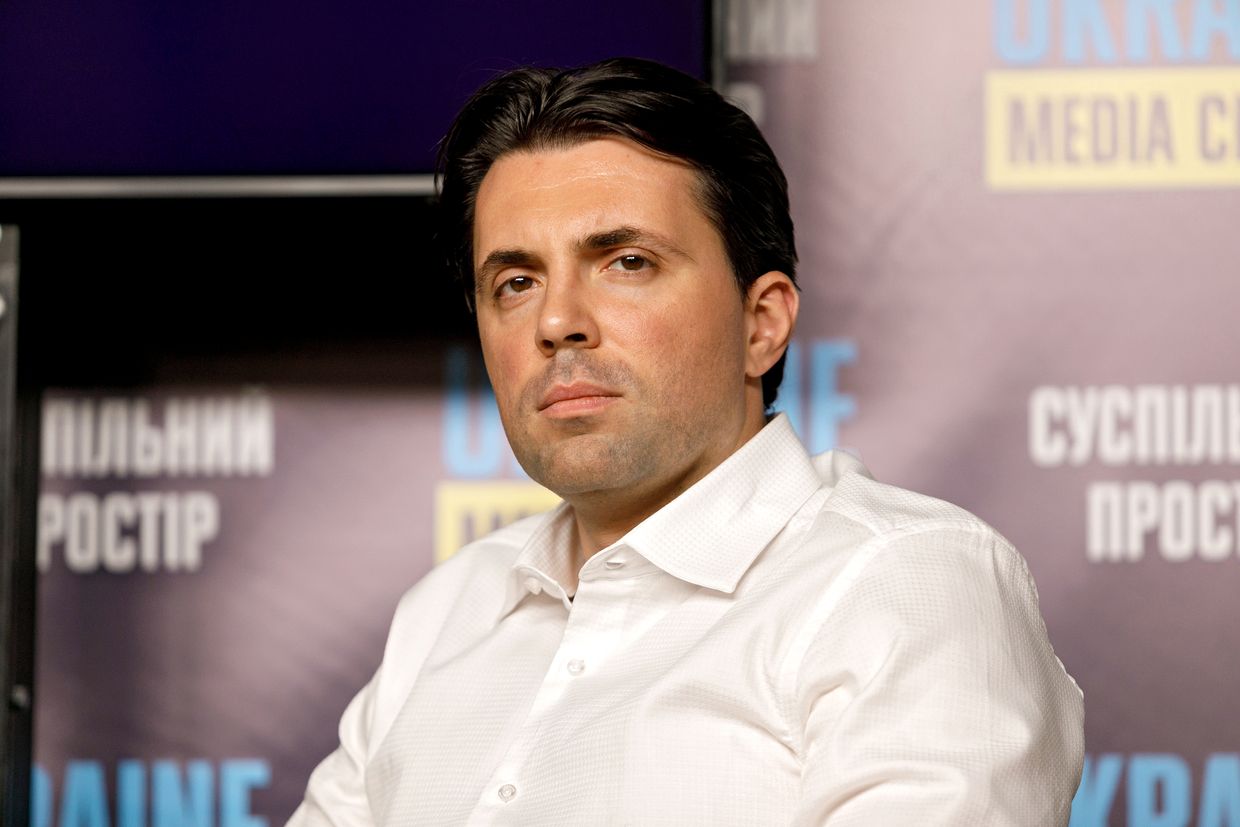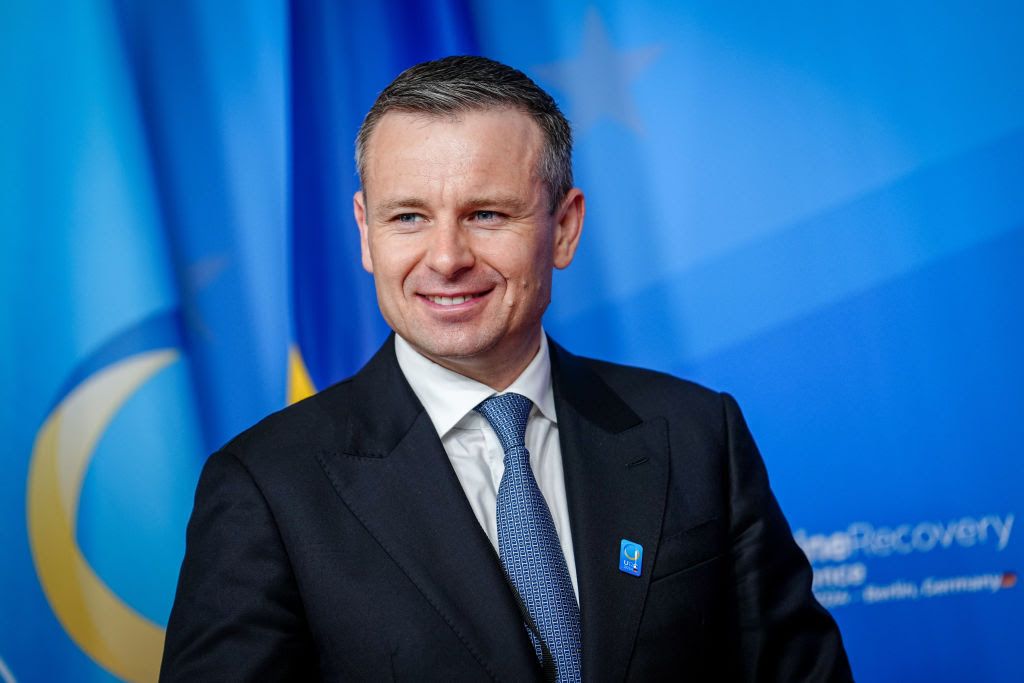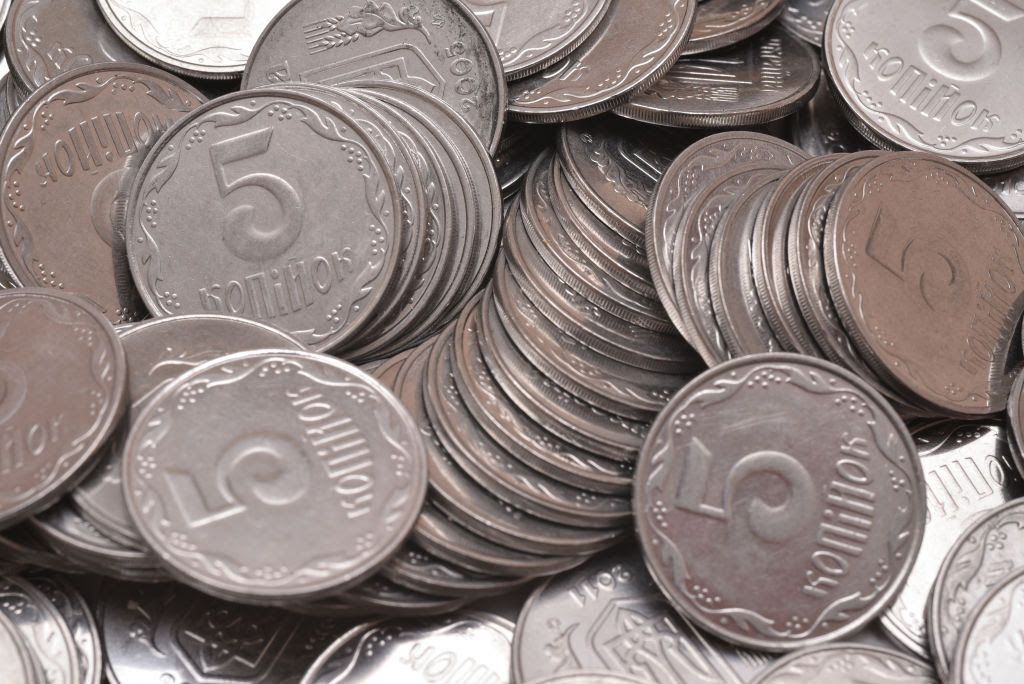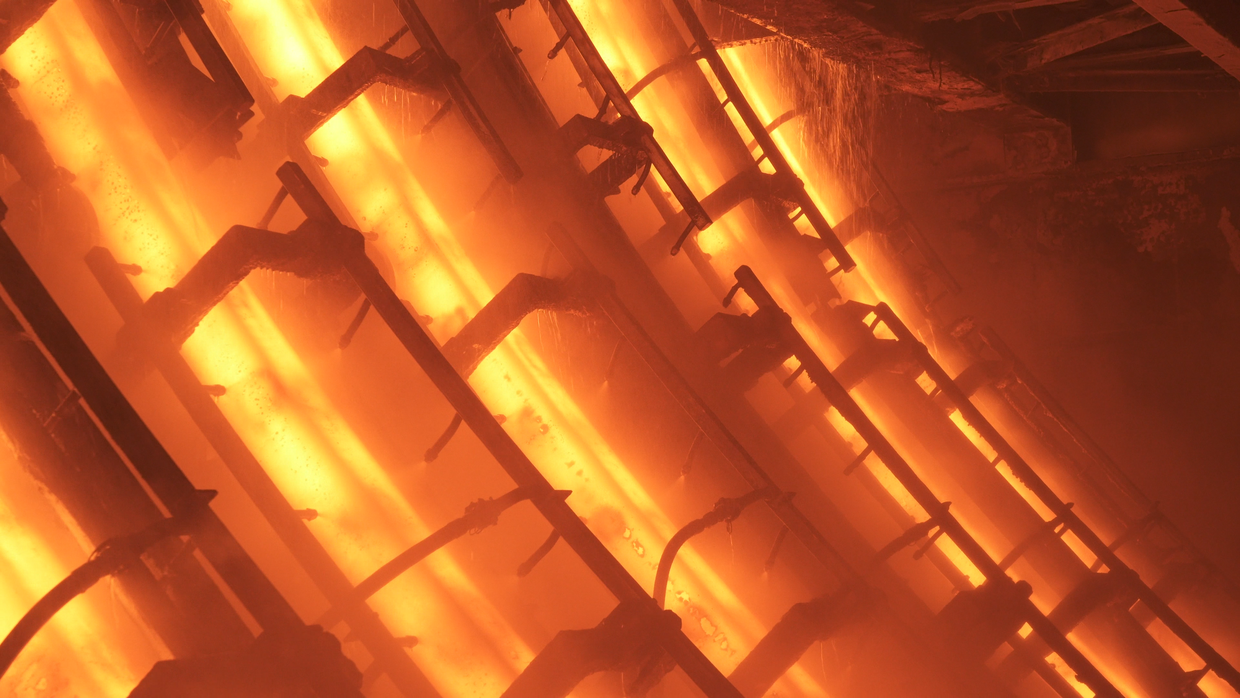The following is the Sept. 3, 2024 edition of our Ukraine Business Roundup weekly newsletter. To get the biggest news in business and tech from Ukraine directly in your inbox, subscribe here.
The noise is deafening inside global steel giant ArcelorMittal’s plant in Kryvyi Rih in Dnipropetrovsk Oblast — Ukraine’s largest steel plant — but quiet compared to pre-war, business reporter Dominic Culverwell writes in his latest.
Russia’s full-scale invasion has eaten away Ukraine’s metallurgy industry, with only six remaining plants producing 6.2 million metric tons last year. This is a far cry from the bumper year in 2021 when nine plants produced 22 million metric tons.
This year’s prediction of over 7 million metric tons is more positive. But experts warn that Ukraine has reached its full current production potential.
Blackouts, a workforce deficit, high electricity prices, and disrupted supply chains, are holding back production. In the last 10 months, Ukrainian crude steel production flatlined at around 500-550,000 metric tons per month, Stanislav Zinchenko, CEO of the GMK Center, a metallurgy consulting company, told the Kyiv Independent.
Ukraine is proud of its strong steel-making culture, which contributed to a tenth of its pre-war GDP. The industry will need $62 billion in investment over 20 years for a full recovery, according to a report by Oxford University. But for now, big investments are on hold.
Steel producers are based in Ukraine’s southern and eastern industrial heartland, which falls into direct firing range from Russian-occupied territory. ArcelorMittal Kryvyi Rih is around 80 kilometers from the front lines — a distance that Russian missiles can cover in two minutes from the occupied parts of Zaporizhzhia Oblast.
The situation is even more dire for metallurgy giant Metinvest, Ukraine’s largest steel producer. The company — which is majority-controlled by the country’s richest man Rinat Akhmetov — lost two huge plants in Mariupol in 2022, Illich and Azovstal, and around 65% of its business. Now, their coal mines in Pokrovsk, Donetsk Oblast, are under threat from an escalating Russian advance.
But there is one saving grace, notes Zinchenko: Ukraine’s rich iron ore deposits, the biggest in Europe. Global industrialists are hungry for iron ore, a core component of steel, and Ukraine can feed the demand.
“It's why the Ukrainian iron and steel industry is still alive,” he said.
Read Dominic Culverwell’s full article here.

Grid chief ousted
The controversial decision to dismiss the head of Ukraine’s state-owned energy grid operator has prompted resignations from two independent members of the company’s supervisory board and raised concerns from partners abroad.
Volodymyr Kudrytskyi, who served as head of Ukrenergo since 2020, was dismissed on Sept. 2 on the grounds of failing to protect Ukraine’s energy infrastructure amid Russian missile strikes, according to a statement from the company’s supervisory board chairman Daniel Dobbeni and board member Peder Andreasen.
Following his dismissal, however, the two said in a statement that the dismissal was “politically motivated” and had “no valid grounds.”
“From the first days of our work in the Supervisory Board of Ukrenergo, we felt political pressure and observed constant attempts to bypass the competition to appoint people whose professional qualities were questionable to the company's management board,” their statement said, which also announced their resignation on Sept. 3.
Oleksandr Kharchenko, managing director of the Energy Industry Research Center, said the dismissal will very likely erode trust with international partners.
Read more here.

Chinese banks are curbing Russian transactions as sanctions bite
Chinese banks are shutting down transactions with Russia "en masse," with delays in payments intensifying during August, Reuters reported on Aug. 30, citing sources familiar with the matter.
A number of major Chinese banks have begun blocking transactions for electronics out of fear of secondary sanctions imposed by the U.S over Russia’s war against Ukraine. Transactions worth tens of billions of yuan are currently stuck in limbo, a source told Reuters.
What’s behind the decision? Chinese banks are worried about losing access to the U.S. dollar and being cut off from the international financial markets, experts told the Kyiv Independent.
“(The U.S.) is saying ‘you are going to have to choose – do you want access to the U.S. dollar and the international financial system, or do you want to do a small amount of business with Russia,” Tom Keatinge, director of the Center for Finance and Security, a London-based research group, told the Kyiv Independent.
While trade between Russia and China has surged since the start of the full-scale invasion, Beijing is keen not to rock the boat when it comes to its relationship with the U.S., its top trading partner, said Timothy Ash, a senior emerging market (EM) sovereign strategist at BlueBay Asset Management.
Read more here.

Bondholders agree to debt restructuring
Ukraine received overwhelming support last week from private creditors to restructure its more than $20 billion in international bonds, providing the country with the necessary debt relief to continue financing its fight against Russia's invasion.
Creditors agreed to a nominal loss of 37% of their assets, giving up claims worth $8.5 billion. The deal postpones the bonds' maturity and lowers interest rates, the Finance Ministry said in a statement.
The agreement comes after two months of negotiations this summer, during which Kyiv proposed bondholders accept bigger losses on the overseas bonds two years after payments were postponed due to Russia’s war.
Why it matters: Restructuring its debt will save Ukraine $11.4 billion over the next three years by postponing due dates for the bonds and reducing interest rates on them.
"Finalizing the Eurobond debt restructuring deal is a crucial step to ensure Ukraine maintains the budget stability needed to continue financing our defense, along with other critical budget items such as healthcare, education, and social services," Finance Minister Serhii Marchenko said after the deal closed.

De-Russifying the hryvnia
Ukraine’s central bank wants to rename its smallest denomination of the hryvnia — the country’s national currency — from kopiyka to the shah as the current name too closely resembles Russia’s kopek.
Why? As Ukraine continues its process of de-Russification and decommunization, set in motion after the EuroMaidan Revolution and accelerated after the start of the full-scale invasion, the change will help Ukraine to further sever its ties with its neighbor, the bank said.
“Having studied the history of Ukraine's money circulation, we have come to the undeniable conclusion that the name ‘kopiyka’ for the change coin is a symbol of the Moscow occupation,” the bank’s Governor Andriy Pyshnyi said in a statement.
The word shah for a small coin in the Ukrainian language was first recorded in the 16th century, and can be traced back to the Ukrainian historical warriors, Cossacks.
The gradual introduction of the new shah into circulation will not affect inflation, since no increase in the amount of cash in the economy is expected, the bank said.
What else is happening
Ukraine Fashion Week is back
After 2.5 years of war, Ukraine Fashion Week is back to in-person events in Kyiv, with over 50 Ukrainian designers, including internationally renowned names like Ksenia Schaider and Ruslan Baginsky showcasing their work. The team told Vogue Ukraine that it was originally only planning two days of events for this year’s fashion week, but decided to do a full four days. Events are taking place between Sept. 1–4, mostly at Kyiv’s Mystetskyi Arsenal National Art and Culture Museum. Check out photos from the first day of events on Vogue Ukraine’s site here.
Privatbank dismisses CEO early
The Supervisory Board of PrivatBank — Ukraine’s largest bank — said it would dismiss its CEO, Gerhard Bosch, on Nov. 1. Boesch has been CEO since June 10, 2021. In June 2024, the bank announced that Bosch would leave his position, and the supervisory board had already begun the search for a new leader, but his departure was not expected to come so early. It is unclear why the board moved to remove him from his post in November.
Ukraine to receive $800 million from US for its energy sector
Ukraine is set to receive $800 million from the U.S. to help stabilize its severely damaged energy infrastructure, Yulia Svyrydenko, Ukraine's First Deputy Prime Minister, said during her visit to Washington on Aug. 31. According to Svyrydenko, the funds will be allocated to essential equipment for immediate repairs to Ukraine's power facilities, which have been heavily damaged by nearly two years of Russian airstrikes.
McDonald’s opens its 10th restaurant in Odesa
The new restaurant, which opened on Aug. 30, brings the chain’s total number of operating restaurants in Ukraine to 103 out of 118 existing restaurants. The new restaurant in Odesa is located near the entrance to the city on the M-05 Kyiv-Odesa highway, and is the fourth restaurant of the chain to be connected to a gas station, the company said in a press release.
IMF will meet with Ukrainian officials this week to review country’s budget, Bloomberg reports
The International Monetary Fund will meet with the officials to review Ukraine's budget outlook and whether to disburse the next $1.1 billion tranche as part of its $15.6 billion aid program. The team will be in Kyiv starting Sept. 4, Bloomberg reported, citing people familiar with the matter. The fund approved the loan program in March 2023, the first time it lent to a country at war. The last tranche of $2.2 billion was disbursed at the end of June.













